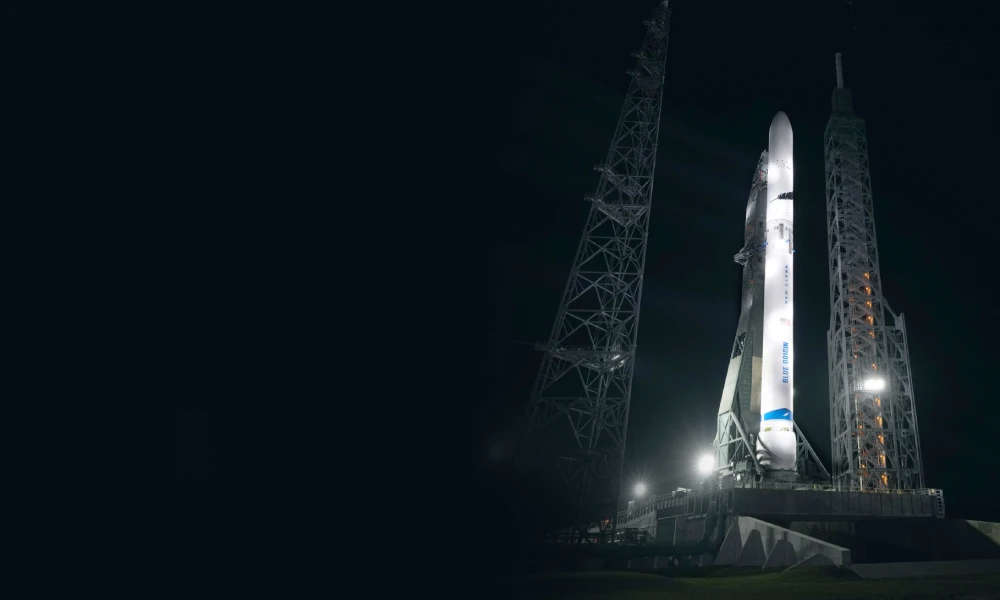Jeff Bezos’ space venture, Blue Origin, is facing turbulent times. The company aims to revolutionize space travel and compete with industry giants like SpaceX. But recent setbacks have cast doubt on their progress.
Blue Origin’s flagship project is the New Glenn rocket. It’s a 321-foot behemoth designed for orbital launches. The rocket was supposed to be ready years ago. Now, it’s four years behind schedule.
The company had hoped to launch New Glenn this October. The mission? NASA‘s EscaPADE, sending two spacecraft to Mars. It’s crucial they hit this deadline, as Earth and Mars won’t align this favorably for another two years.
But recent events have thrown this timeline into question. Reports surfaced this week of two major failures during testing, which have damaged critical hardware for future launches.
In one case, a rocket section crumpled due to worker error. Another incident saw an upper rocket portion explode during stress testing. No injuries were reported, but the damage is significant. These aren’t Blue Origin’s only woes. In 2022, their smaller New Shepard rocket suffered an engine explosion. This grounded their space tourism flights for over a year.
Despite these setbacks, Blue Origin remains optimistic. A company spokesperson insists they’re still on track for a 2024 launch. They claim all flight hardware is complete and assembly is underway. But industry experts are skeptical. The October deadline looms large and it seems increasingly unlikely that New Glenn will be ready in time.
Blue Origin’s struggles highlight the challenges of commercial spaceflight. Even with vast resources, the road to orbit is fraught with difficulties. The stakes are high because Blue Origin isn’t just chasing NASA contracts. They’re also key to Amazon’s Project Kuiper, a satellite internet constellation. Success could mean lucrative government and commercial deals.
Failure, on the other hand, could be catastrophic. It would further delay Blue Origin’s entry into the orbital launch market. This would give competitors like SpaceX an even greater lead. Can Blue Origin overcome these hurdles? Or will they be left behind in the new space race?
The company’s BE-4 engines add another layer of complexity. These engines, plagued by delays, are crucial for New Glenn. They’re also slated for use in United Launch Alliance (ULA)’s Vulcan rocket.
Blue Origin’s challenges underscore the difficulty of spaceflight. Even simple mistakes can have devastating consequences. The imploded rocket section, caused by overlooked pressure valves, is a stark reminder.
Yet, the potential rewards are immense. Successful orbital launches could transform Blue Origin’s fortunes. They’d be poised to compete for military contracts and commercial satellite deployments.
For now, the future remains uncertain. Blue Origin continues its uphill battle against technical challenges and tight deadlines and the coming months will be critical to the company’s survival. Will New Glenn soar into orbit this year? Or will Blue Origin face further delays and setbacks?
One thing is clear: the path to the stars is never easy. Blue Origin’s struggles remind us of the immense challenges in pushing the boundaries of human exploration.


